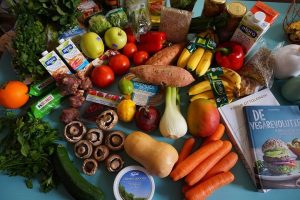This week, Targitfit is pleased to bring you an informative health article by Lily Brooks:
Diet and exercise affect many health issues. Eating right and working out are essential for keeping your body healthy and changing those habits can make all the difference in how well you respond to illness and disease. That’s especially true for someone recovering from substance abuse. It’s not easy being in recovery. It takes a lot of willpower to avoid the bad substances you crave. Putting your focus on exercise and eating right can help make sure you stay on the right path toward health and wellness.
- Hydrate
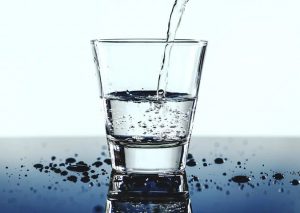 Any expert would tell you that hydration is one key factor in your journey toward health, especially when you’re in detox and recovery. It is highly recommended that you drink around half an ounce to an ounce of water for each pound of body weight. But you’re not limited to just drinking water, there are other sources of liquid that are almost as beneficial as water. You can make infused water by adding fruits and herbs to a pitcher of water and refrigerating it for a few hours.
Any expert would tell you that hydration is one key factor in your journey toward health, especially when you’re in detox and recovery. It is highly recommended that you drink around half an ounce to an ounce of water for each pound of body weight. But you’re not limited to just drinking water, there are other sources of liquid that are almost as beneficial as water. You can make infused water by adding fruits and herbs to a pitcher of water and refrigerating it for a few hours.
- Eat your veggies and fruits
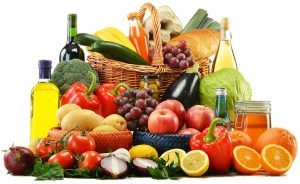 It is recommended that you fill half your plate with vegetables and fruits at each meal. This advice applies to everyone but more so for people in recovery. Fruits, particularly citrus fruits are rich in antioxidants which helps to increase your immunity against diseases. Green, leafy vegetables such as kale, romaine, and spinach help to rid the body of toxins and also help it to detoxify the liver from harmful toxins created as a byproduct of metabolism.
It is recommended that you fill half your plate with vegetables and fruits at each meal. This advice applies to everyone but more so for people in recovery. Fruits, particularly citrus fruits are rich in antioxidants which helps to increase your immunity against diseases. Green, leafy vegetables such as kale, romaine, and spinach help to rid the body of toxins and also help it to detoxify the liver from harmful toxins created as a byproduct of metabolism.
- Go for whole grains
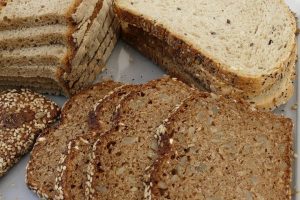 Whole grains contain the endosperm, germ, and bran which are normally removed from grains during refinement. These parts contain a lot of nutrients including insoluble fiber which helps control appetite and promote digestion. Examples of whole grains include brown rice, oatmeal, and wheat bread. Other less common sources of whole grains include quinoa, millet, and buckwheat.
Whole grains contain the endosperm, germ, and bran which are normally removed from grains during refinement. These parts contain a lot of nutrients including insoluble fiber which helps control appetite and promote digestion. Examples of whole grains include brown rice, oatmeal, and wheat bread. Other less common sources of whole grains include quinoa, millet, and buckwheat.
- Wild salmon for protein
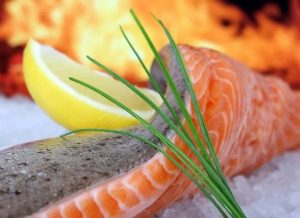 Protein is essential for those recovering from substance abuse as it helps repair damaged cells. Wild salmon is exceptionally rich in protein and it also contains omega-3 fatty acid which has natural anti-inflammatory properties. Salmon can be broiled, baked, or grilled and served with a side of vegetables or brown rice.
Protein is essential for those recovering from substance abuse as it helps repair damaged cells. Wild salmon is exceptionally rich in protein and it also contains omega-3 fatty acid which has natural anti-inflammatory properties. Salmon can be broiled, baked, or grilled and served with a side of vegetables or brown rice.
- Seeds and nuts for snacks
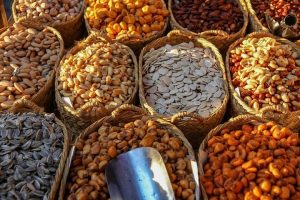 Throughout the day, getting hungry in between meal times can’t be helped, especially when we are in treatment centers. No matter how conscious we might be about the food that we eat during mealtime, the temptation snack on junk is real and very strong. Turning to nuts and seeds for snacks is not only a healthier option but also affords us protein that we need to help repair our bodies and help regulate our blood sugar levels. It also helps to keep our mood stable throughout the day.
Throughout the day, getting hungry in between meal times can’t be helped, especially when we are in treatment centers. No matter how conscious we might be about the food that we eat during mealtime, the temptation snack on junk is real and very strong. Turning to nuts and seeds for snacks is not only a healthier option but also affords us protein that we need to help repair our bodies and help regulate our blood sugar levels. It also helps to keep our mood stable throughout the day.
- Avoid fast foods, sugar, and caffeine
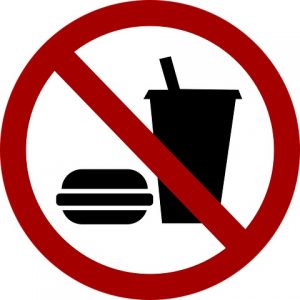 When we are in recovery, the most common mistake that people make when it comes to their nutrition is turning to fast foods and sugary food to replace their addiction. Treatment centers like The Beaches Rehab Center try to mitigate this unhealthy compulsion by encouraging people to turn to other constructive ways such as art and fitness. Fast foods are considered junk and don’t actually offer that much nutritional value other than empty calories. They are also packed with processed ingredients that only help to reverse the hard work that many recovering patients have worked so hard to achieve.
When we are in recovery, the most common mistake that people make when it comes to their nutrition is turning to fast foods and sugary food to replace their addiction. Treatment centers like The Beaches Rehab Center try to mitigate this unhealthy compulsion by encouraging people to turn to other constructive ways such as art and fitness. Fast foods are considered junk and don’t actually offer that much nutritional value other than empty calories. They are also packed with processed ingredients that only help to reverse the hard work that many recovering patients have worked so hard to achieve.
- Start a food journal
You might be surprised how much junk and bad food we eat throughout the day, especially if we don’t keep proper track. The same goes for those in recovery, which is keeping a food journal is helpful. Such a detailed account of what we eat allows us to immediately see a pattern of unhealthy food choices that we can learn to avoid in the future.
Lily Brooks is an avid blogger. She writes about a variety of topics including health, science, and literature. She is currently working with The Beaches Rehab Center, a fully accredited & licensed Drug and Alcohol Addiction Treatment Center.

